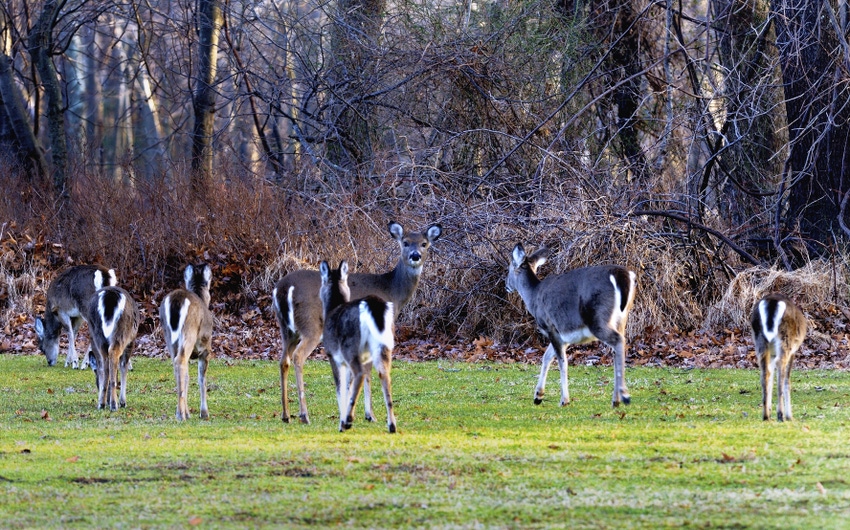NIH study: No CWD transmissibility in macaques
Study suggests CWD will not spread to people who consume meat from CWD-infected animals, but researchers continue to urge caution.
April 26, 2018

Chronic wasting disease (CWD) did not cross the species barrier to infect cynomolgus macaque monkeys, according to a lengthy investigation by National Institutes of Health (NIH) scientists exploring CWD risks to people.
CWD is a brain-damaging and fatal prion disease found in deer, elk and moose; in humans, prion diseases can take more than a decade to develop. In the study, which appeared in the Journal of Virology, 14 macaques were cerebrally and orally exposed to brain matter from CWD-infected deer and elk and then monitored for up to 13 years. Macaques often are used to model human prion diseases because they are genetically similar to humans and are susceptible to several types of prion diseases known to infect people, NIH said.
Researchers screened tissues for prion disease using several tests — including the highly sensitive RT-QuIC assay — and found "no clinical, pathological or biochemical evidence suggesting that CWD was transmitted" to macaques, according to their paper. RT-QuIC is Real-Time Quaking-Induced Conversion, which was developed at Rocky Mountain Laboratories in Hamilton, Mont., part of NIH's National Institute of Allergy & Infectious Diseases (NIAID).
A key public health concern is whether people who consume meat or products from CWD-infected animals are susceptible to prion disease. CWD was first identified in 1967 in captive deer held in Colorado wildlife facilities. CWD has been gradually spreading in U.S. wildlife and is now found in 25 states as well as in Canada. The disease also has been found in South Korea, Norway and Finland.
Human prion diseases include fatal insomnia, kuru, Gerstmann-Straussler-Scheinker syndrome and variant, familial and sporadic Creutzfeldt-Jakob disease (CJD). Sporadic CJD is the most common human prion disease, affecting about one in 1 million people annually worldwide. Other prion diseases include scrapie in sheep and bovine spongiform encephalopathy in cattle.
Despite these findings, researchers suggest that people err on the side of caution and not consume meat from game animals that appear ill or thin or are confirmed carriers of CWD, NIH said.
NIAID conducts and supports research — at NIH, throughout the U.S. and worldwide — to study the causes of infectious and immune-mediated diseases and to develop better means of preventing, diagnosing and treating these illnesses.
NIH, the nation's medical research agency, includes 27 institutes and centers and is a component of the U.S. Department of Health & Human Services. NIH is the primary federal agency conducting and supporting basic, clinical and translational medical research and is investigating the causes, treatments and cures for both common and rare diseases.
You May Also Like


.png?width=300&auto=webp&quality=80&disable=upscale)
